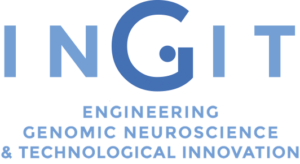INGIT was born as an engineering brand focused especially on innovation.
INGIT was created in 2001, and its goal is to develop systems and medical devices in the area of intellectual disability, as well as technical equipments in the area of energy.
Within <Projects> section, several of these developments are exposed with vocation and innovative objectives.
This author, while collaborating with different companies and organizations, decided to get involved with the project and dig deeper into the aspects of the subjects, as well as into the behavioral component, studying factors that are more internal , which can be attributed to subjects given their human and social nature. He pays attention to their sensory, emotional and cognitive characteristics, especially in the field of Neuroscience and Psychology.
The tools to develop and investigate within these disciplines are generically focused on the <Information and Communication Theory>, the <Psychophysics>, and the < Complexity Theory>. This last one is quite controversial due to its “mishmash” character, and in which the grounds will be established with the intention of formalization.
Thus, we encounter <Genomics>, an immense field in which we think the “Theory of complexity” has referents and tools to advance to the <Complexity, Networks and Information Theory>. This could be done by extracting these tools there applied as an element of general purpose, in addition to visualizing Genomics itself as a radical foundation of Neuroscience and Psychology, especially through Epigenetics, a good descriptor of the objectives of psychoneuroimmunoendocrinology (Tafet & Neverot, 2016).
Finally, there is a fundamental field in the origin of INGIT: the <Technological Innovation and Heuristics>.
This last tool, which works as a navigation compass, is understood and applied as a guiding and discursive value of research. At the same time, it is operative as a research undertaken in the proposed areas, and in some cases it is of essential value, consisting in a means to reach the research goal, providing methodological value to these contents, that is to say, in: Engineering and Information, Neuroscience and Psychology, and Genomics and Complexity.
Note: The financially neutral nature of these researches leads us to work with a copyright of the <Creative Commons> type, both in content philosophy, and in favor of possible knowledge, which is the objective and ultimate intention of the pages that follow.
Another statement is made, the intentions and explicit personal principles of: honesty, curiosity, perseverance, objectivity, humility to the evidence, attention, skepticism and privacy.







